Explore the Best AI Image Gallery
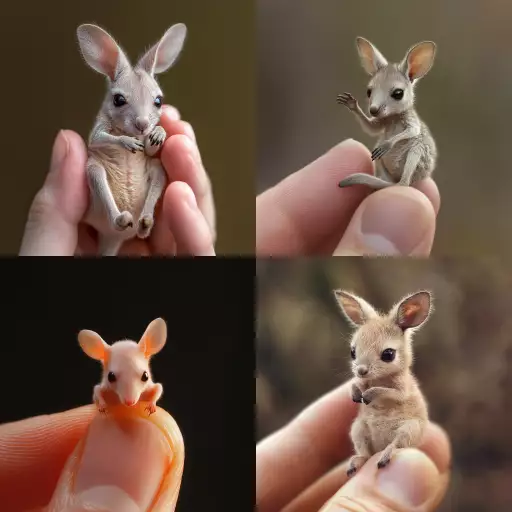
Weaving the Future: AI-Generated Media and the Creative Canvas
The realm of creativity is undergoing a profound transformation, fueled by the burgeoning capabilities of artificial intelligence (AI). AI-generated media, encompassing everything from text and images to music and video, is rapidly becoming an integral part of the creative landscape, blurring the lines between human and machine ingenuity. This revolution presents both exciting opportunities and complex ethical challenges that demand careful consideration.
Unleashing New Creative Frontiers
AI-powered tools are empowering artists, designers, and content creators with unprecedented levels of flexibility and efficiency. Imagine a world where:
- Artists can generate unique visual concepts based on textual descriptions, accelerating the ideation process.
- Musicians can compose intricate melodies and harmonies with AI assistance, exploring new sonic territories.
- Writers can overcome creative blocks by leveraging AI to suggest plot points, character arcs, or even entire scenes.
These are just a few examples of how AI is democratizing creativity, making it accessible to a wider range of individuals and fostering innovation across diverse artistic disciplines.
Applications Across Industries
The impact of AI-generated media extends far beyond the realm of fine arts. Industries such as advertising, entertainment, education, and even healthcare are leveraging these technologies to:
- Generate personalized marketing campaigns that resonate with target audiences.
- Create immersive interactive experiences for games, simulations, and virtual reality environments.
- Develop engaging educational content that adapts to individual learning styles.
- Design realistic medical visualizations for surgical planning or patient education.
Navigating the Ethical Landscape
As with any powerful technology, AI-generated media raises important ethical considerations that require careful attention:
- **Ownership and Copyright:** Who owns the copyright to AI-generated content? Is it the creator who provided the input prompts, the developer of the AI algorithm, or the AI itself?
- **Bias and Fairness:** AI algorithms are trained on massive datasets, which can reflect existing societal biases. Its crucial to ensure that AI-generated media does not perpetuate harmful stereotypes or discrimination.
- **Authenticity and Trust:** How do we distinguish between human-created and AI-generated content? The increasing sophistication of AI raises concerns about the potential for misinformation and manipulation.
- **Job Displacement:** Will AI-generated media lead to job losses in creative industries?
Addressing these ethical challenges will require a collaborative effort involving policymakers, industry leaders, researchers, and the public. Its essential to establish clear guidelines and regulations that promote responsible development and use of AI-generated media.
The Future of Creative Expression
AI-generated media is poised to revolutionize the creative landscape in profound ways. We can expect to see:
- **Increased Collaboration:** Humans and AI will work together as partners, leveraging each others strengths to create innovative and groundbreaking works.
- **Personalized Creative Experiences:** AI algorithms will enable creators to tailor their output to specific audiences, preferences, and contexts.
- **New Artistic Forms:** As AI capabilities continue to advance, we may witness the emergence of entirely new artistic expressions that defy traditional boundaries.
The future of creativity is a tapestry woven with both human ingenuity and artificial intelligence. By embracing this convergence responsibly, we can unlock a universe of possibilities, pushing the boundaries of imagination and reshaping the very essence of art and expression.
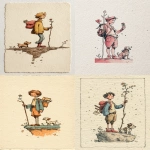

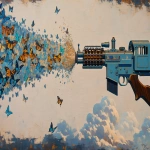
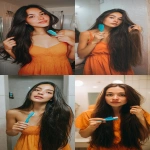
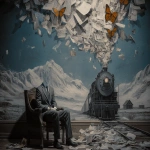
](https://images.ai-img.art/thumbnails/150/230fb1adf4241373591167585daecc4556f4c58c4d0dc33638c62b1c60c1b72a.webp)
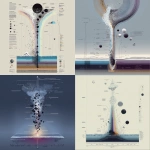
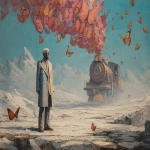
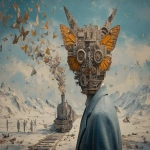

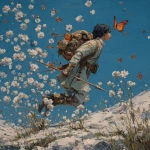
](https://images.ai-img.art/thumbnails/150/10ab1dbb1358d3dbba41472a395400bd9daf5cba3f5c8841970b4110820d5a15.webp)


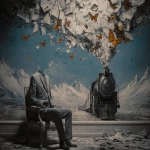



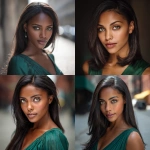

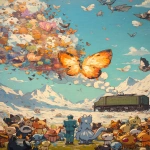
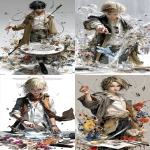
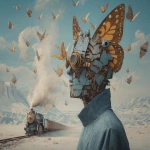

](https://images.ai-img.art/thumbnails/150/2f4f685af05f9526e1ac2f05f53dbb1d97bf8a65f6a41c6e67059c5ed2aa871f.webp)
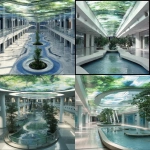
](https://images.ai-img.art/thumbnails/150/58fa7e3c741db40e9e61e20410c8d5675b11efb625df109812cc768f9b17b717.webp)


](https://images.ai-img.art/thumbnails/150/bda14621f89269b376d6681934fea3c4af8c5f8593b80e1cb25cdf0047f98621.webp)

](https://images.ai-img.art/thumbnails/150/396b1c442fa4d576e35f871ba0f3c7e52bb62c6bcee69082dbcb816a5fd3aa8c.webp)

](https://images.ai-img.art/thumbnails/150/6650b0d98c6fec81df8bdfb569e0033970b46a653d188dde42417e624901493f.webp)
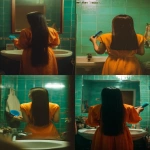
](https://images.ai-img.art/thumbnails/150/266c825c7f03beff90a8a60e36207b8240cdf722eb1cf5db26e8adb51b992287.webp)
](https://images.ai-img.art/thumbnails/150/f7e46d83151e744219d4886ca1329794d3e9d5071649abea0b2996cb34c3c77c.webp)
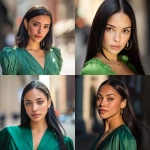
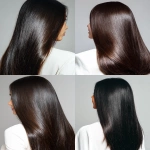
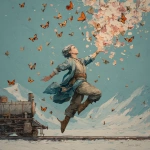


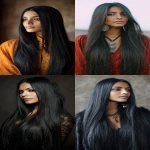

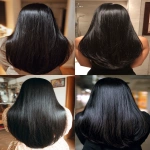


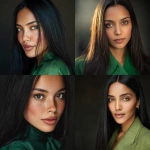

](https://images.ai-img.art/thumbnails/150/b814eba984b490e7f87095501b4c13b17e89f8960f044f09fbf2053969d9be29.webp)